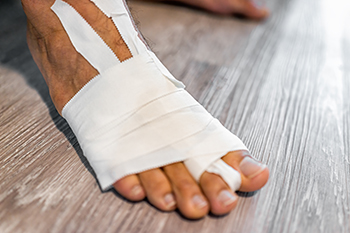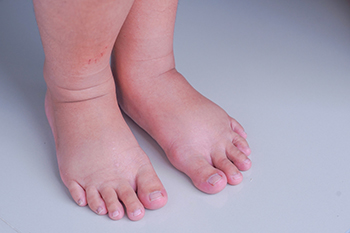

Strong ankles are vital for runners to maintain stability, prevent injuries, and enhance performance. Incorporating specific exercises into your routine can help strengthen the muscles, ligaments, and tendons surrounding the ankles. Simple exercises like calf raises, where you lift your heels off the ground and lower them back down, target the calf muscles and improve ankle stability. Ankle circles are done by rotating your ankles in both directions, which can help to improve flexibility and range of motion. Additionally, balance exercises, such as single-leg stands or using a balance board, can enhance proprioception and strengthen the ankle-stabilizing muscles. Strengthening exercises, such as toe curls and marble pickups, focus on the muscles of the foot and can contribute to overall ankle strength and stability. By incorporating these exercises into your regular training regimen, you can help reduce the risk of ankle injuries while enjoying the benefits of running for improved health and fitness. If you have an ankle injury, it is suggested that you consult a podiatrist who can treat this condition and offer you future running injury prevention tips.
All runners should take extra precaution when trying to avoid injury. If you have any concerns about your feet, contact Dr. Thomas Tran of Southwestern Foot & Ankle Associates, P.C.. Our doctor will treat your foot and ankle needs.
How to Prevent Running Injuries
There are a lot of mistakes a runner can make prior to a workout that can induce injury. A lot of athletes tend to overstretch before running, instead of saving those workouts for a post-run routine. Deep lunges and hand-to-toe hamstring pulls should be performed after a workout instead of during a warmup. Another common mistake is jumping into an intense routine before your body is physically prepared for it. You should try to ease your way into long-distance running instead of forcing yourself to rush into it.
More Tips for Preventing Injury
If you have any questions, please feel free to contact our office located in Frisco, TX . We offer the newest diagnostic and treatment technologies for all your foot care needs.
 Turf toe is a sports-related injury commonly associated with athletes who play on artificial turf. It is a sprain that occurs when the big toe joint is bent upwards at a significant angle. Turf toe injuries are frequent in sports that involve rapid starts, stops, and pivots, such as football, soccer, or basketball. Additionally, the hard surface of artificial turf increases the likelihood of turf toe, compared to natural grass, because it gives less cushioning for sudden movements. Symptoms of turf toe include pain, swelling, and limited joint movement at the base of the big toe. Rest and elevation are important for mild injuries, whereas severe cases may require immobilization of the toe with taping, stiff-soled footwear, or even a walking boot. Athletes benefit from wearing appropriate footwear that offers sufficient support to minimize the risk of turf toe and other similar injuries. If you suspect a turf toe injury, it is suggested that you make an appointment with a podiatrist for diagnosis and treatment options.
Turf toe is a sports-related injury commonly associated with athletes who play on artificial turf. It is a sprain that occurs when the big toe joint is bent upwards at a significant angle. Turf toe injuries are frequent in sports that involve rapid starts, stops, and pivots, such as football, soccer, or basketball. Additionally, the hard surface of artificial turf increases the likelihood of turf toe, compared to natural grass, because it gives less cushioning for sudden movements. Symptoms of turf toe include pain, swelling, and limited joint movement at the base of the big toe. Rest and elevation are important for mild injuries, whereas severe cases may require immobilization of the toe with taping, stiff-soled footwear, or even a walking boot. Athletes benefit from wearing appropriate footwear that offers sufficient support to minimize the risk of turf toe and other similar injuries. If you suspect a turf toe injury, it is suggested that you make an appointment with a podiatrist for diagnosis and treatment options.
Toe pain can disrupt your daily activities. If you have any concerns, contact Dr. Thomas Tran of Southwestern Foot & Ankle Associates, P.C.. Our doctor can provide the care you need to keep you pain-free and on your feet.
What Causes Toe Pain?
Most severe toe pain is caused due to a sports injury, trauma from dropping something heavy on the toe, or bumping into something rigid. Other problems can develop over time for various reasons.
Toe pain can be caused by one or more ailments. The most common include:
When to See a Podiatrist
Diagnosis
In many cases the cause of toe pain is obvious, but in others, a podiatrist may want to use more advanced methods to determine the problem. These can range from simple visual inspections and sensation tests to X-rays and MRI scans. Prior medical history, family medical history, and any recent physical traumatic events will all be taken into consideration for a proper diagnosis.
Treatment
Treatments for toe pain and injuries vary and may include shoe inserts, padding, taping, medicines, injections, and in some cases, surgery. If you believe that you have broken a toe, please see a podiatrist as soon as possible.
If you have any questions please feel free to contact our office located in Frisco, TX . We offer the newest diagnostic tools and technology to treat your foot and ankle needs.

Custom-made foot and ankle orthotics play a vital role in diabetic foot care by addressing the unique challenges posed by this condition. Diabetes can lead to peripheral neuropathy and impaired circulation, leaving the feet vulnerable to injuries and ulcers. Left untreated, these complications can escalate, potentially resulting in severe infections, tissue damage, and possibly amputation. Orthotics designed specifically for diabetic patients offer several benefits. They help redistribute pressure away from areas prone to ulceration, thereby reducing the risk of wounds. Additionally, orthotics can improve stability and alignment, which is helpful for preventing falls and injuries. By providing cushioning and support, they also alleviate discomfort and pain associated with diabetic neuropathy. If you have diabetic foot issues, it is suggested that you schedule an appointment with a podiatrist to discuss whether orthotics can help you.
If you are having discomfort in your feet and would like to try orthotics, contact Dr. Thomas Tran from Southwestern Foot & Ankle Associates, P.C.. Our doctor can provide the care you need to keep you pain-free and on your feet.
What Are Orthotics?
Orthotics are inserts you can place into your shoes to help with a variety of foot problems such as flat feet or foot pain. Orthotics provide relief and comfort for minor foot and heel pain but can’t correct serious biomechanical problems in your feet.
Over-the-Counter Inserts
Orthotics come in a wide variety of over-the-counter inserts that are used to treat foot pain, heel pain, and minor problems. For example, arch supports can be inserted into your shoes to help correct overarched or flat feet, while gel insoles are often used because they provide comfort and relief from foot and heel pain by alleviating pressure.
Prescription Orthotics
If over-the-counter inserts don’t work for you or if you have a more severe foot concern, it is possible to have your podiatrist prescribe custom orthotics. These high-quality inserts are designed to treat problems such as abnormal motion, plantar fasciitis, and severe forms of heel pain. They can even be used to help patients suffering from diabetes by treating foot ulcers and painful calluses and are usually molded to your feet individually, which allows them to provide full support and comfort.
If you are experiencing minor to severe foot or heel pain, it’s recommended to speak with your podiatrist about the possibilities of using orthotics. A podiatrist can determine which type of orthotic is right for you and allow you to take the first steps towards being pain-free.
If you have any questions please contact our office located in Frisco, TX . We offer the newest diagnostic and treatment technologies for all your foot and ankle needs.

Swollen feet, a common and often uncomfortable condition, can stem from various factors. One primary cause is fluid retention, which occurs when excess fluid accumulates in the tissues, leading to swelling and puffiness. This fluid buildup can result from prolonged standing or sitting, particularly in hot weather, as well as hormonal changes during pregnancy or menstruation. Additionally, certain medical conditions, such as heart failure, kidney disease, or liver problems, can impair the body's ability to regulate fluid levels and contribute to swelling in the feet and ankles. Injuries such as sprains or fractures may also lead to swelling as the body responds to tissue damage and inflammation. Furthermore, lifestyle factors like obesity or poor circulation can exacerbate swelling in the lower extremities. Identifying the underlying cause of swollen feet is essential for proper management and treatment, which may include lifestyle modifications, medication, or medical intervention to address the root issue and alleviate discomfort. A podiatrist can determine the cause of swollen feet. If you have this condition, it is suggested that you confer with this foot doctor who can offer appropriate treatment solutions.
Swollen feet can be a sign of an underlying condition. If you have any concerns, contact Dr. Thomas Tran of Southwestern Foot & Ankle Associates, P.C.. Our doctor can provide the care you need to keep you pain-free and on your feet.
Swollen feet are a common ailment among pregnant women and people who stand or sit for extended periods. Aging may increase the possibility of swollen feet and patients who are obese often notice when their feet are swelling too. There may be medical reasons why swollen feet occur:
Swollen feet can also be caused by bone and tendon conditions, including fractures, arthritis, and tendinitis. Additionally, there may be skin and toenail conditions and an infection may cause the feet to swell. Patients who take medicine to treat high blood pressure may be prone to getting swollen feet.
Many patients elevate their feet to help relieve the swelling and this is generally a temporary remedy. When a podiatrist is consulted the reason behind the swelling can be uncovered and subsequently treated.
If you have any questions please feel free to contact our office located in Frisco, TX . We offer the newest diagnostic tools and technology to treat your foot and ankle needs.
Copyright © Southwestern Foot and Ankle Associates, P.C. | Site Map | Nondiscimination | Design by: Podiatry Content Connection